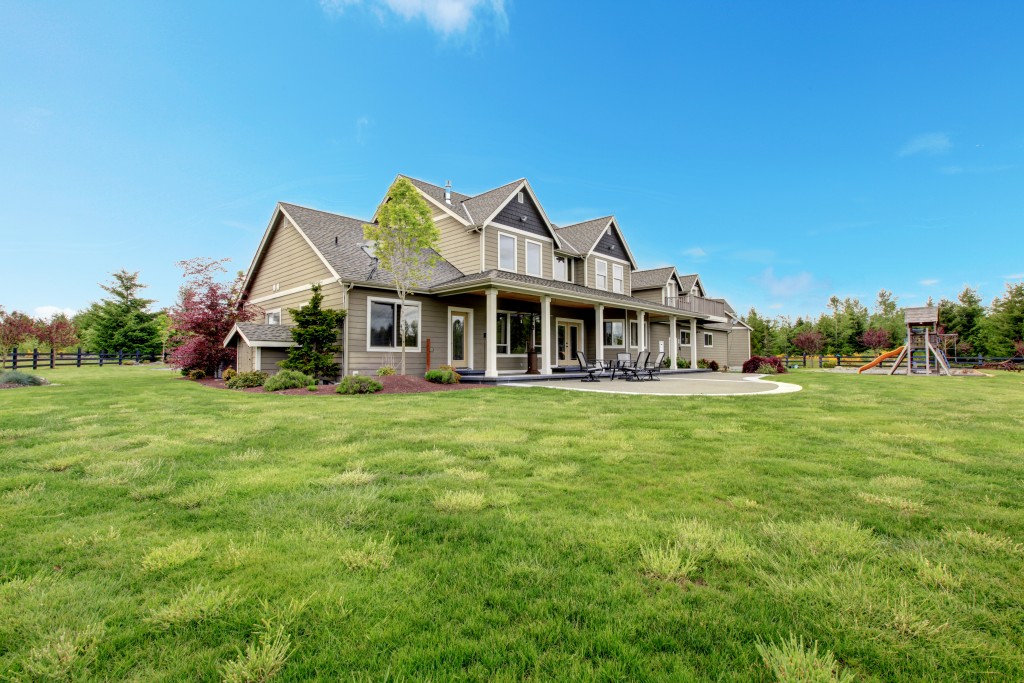Have you been thinking about building your own house recently? Well, if the answer is yes, then it’s certainly not a surprise. Everybody wants a great home to live in. Think about it. As of 2019, 862,100 building permits were granted in the United States. Take note that this statistic is just for housing units and not commercial buildings. This tells you how much people are working towards the goal of building their own house as we speak. Then again, doing it right is another story altogether.
Know that whatever is worth doing is worth doing well. And that certainly applies to building your personal space. What’s important then is to know how to build a house that lasts. That means you can rest easy your family is living in comfort and style. ; And how about building a house that lasts beyond your expectations. That’s really something that could send your heart racing.
The Location
People often take for granted the lot where they want to build their home. For many people, it’s just about finding a location. Sometimes it all depends on their budget, their job, or even family circumstances. There are many lots for sale that might suit your circumstances, but there are only a few that will make you want to build a home that will last a lifetime. You need to check if the plot of land is prone to natural disasters such as earthquakes, floods, or wildfires. All of these are not apparent when you buy a lot, but you need to consider the possibilities when you want to buy one.
You might think that sellers are obligated by law to disclose if a lot for sale or property is in a disaster-prone area, but not all states require agents to disclose this information. For example, a Missouri couple bought a property that was in a floodplain. The worst part was the thought that they had saved money when they bought the house, but in 2015 they lost everything after a storm surge destroyed their home. They are only some of the people who wish they knew which cities were prone to such disasters.
If you choose to live in an area that is prone to such incidences, You should also consider the local building codes to see the kid of building requirements and restrictions. Sometimes they might require building supports and struts, especially if the area is prone to earthquakes, landslides, and even tornados.

The Soil
Your house should be built on strong, stable ground. Marshy and silty grounds could make any structure unstable, and a well-known example is the Leaning Tower of Pisa. When it was initially constructed in 1173, the church bell tower of white marble was standing erect. However, upon the construction of the third level of the structure, it started tilting due to unstable soil underneath. Ask a civil engineer to check the soil maps before you even begin construction so your home will not suffer the same fate.
Find the Right Contractor
Finally, look for a contractor who understands what you want and has a deep understanding of the lay of the land. They should also know what the best approach in building any structure on a particular kind of ground. Choose a contractor who knows the best design for your plot of land, and whether you need a second level or you need to raise your flooring. Such building decisions are vital and could be a matter of life and death. Sometimes, the contractor could even suggest design ideas that will suit your climate and ground, so make sure to choose a contractor familiar with the area.
Research is Vital
The right plot for any property is vital, whether you plan to build a residence or turn it into a commercial property. Any buyer should do the proper research and check on the property’s history, as well as the area’s ecology, geology, and economic history. All of these could affect your decision to build a home, if not in the first few years, then a few decades later. Go to City Hall and check on building records for that plot of land, and don’t rely too much on what the property agent discloses to you. Sometimes they might not reveal certain things about the property, because it might have happened years ago and are not covered in the disclosure agreement.
For anyone who wants to invest in real property, they know that it could be a good one in the long run, but you need to make sure that the plot of land you intend to buy has more pros than cons.

